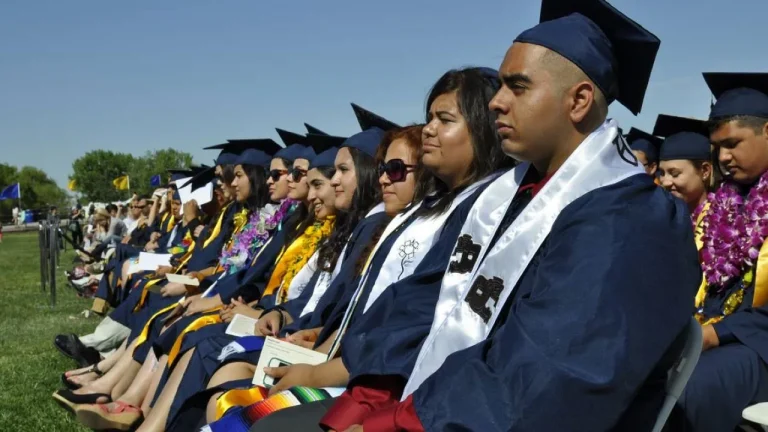The Best Age To Get Married According To Science
Deciding when to get married is a major life decision. You want to make sure you and your partner are ready for the commitment. But is there an ideal age range scientifically shown to lead to the most successful marriages?
If you’re short on time, here’s a quick answer: While people can have happy marriages at any age, evidence suggests ages 25-35 may be optimal. Maturity level, financial stability and life experience tend to peak in this range.
This article will dive into the research around age and marital success. We’ll look at factors like maturity, finances, life stage alignment and more to unpack the science behind the best age to walk down the aisle.
Maturity Level and Brain Development
Cognitive Maturity in Your Mid-20s
According to scientific research, our brains continue to develop well into our mid-20s. This period of cognitive growth is crucial for decision-making and problem-solving skills, which are essential in a successful marriage.
In fact, studies have shown that individuals who marry after the age of 25 tend to have higher levels of cognitive maturity and are better equipped to handle the challenges that come with married life.
During this stage, the prefrontal cortex, the part of the brain responsible for rational thinking and impulse control, undergoes significant changes. This development allows individuals to make more informed choices and consider the long-term consequences of their actions, including the decision to get married.
Furthermore, research suggests that waiting until your mid-20s to tie the knot can lead to better communication and conflict resolution skills. These skills play a crucial role in maintaining a healthy and fulfilling relationship, making it more likely for a marriage to thrive in the long run.
Emotional Maturity Through Life Experiences
While cognitive maturity is important for a successful marriage, emotional maturity is equally crucial. Emotional intelligence, which involves understanding and managing one’s own emotions as well as those of others, is developed through life experiences.
Getting married at a younger age may limit the opportunities for individuals to gain the necessary life experiences and emotional maturity needed to navigate the complexities of a marriage. By waiting until later in life, individuals have the chance to explore their own personal growth, establish a sense of identity, and learn from past relationships.
Life experiences, such as education, career development, and personal growth, can contribute to emotional maturity. These experiences provide individuals with a deeper understanding of themselves and others, improving their ability to communicate, empathize, and handle conflicts within a marriage.
It is important to note that emotional maturity is not solely dependent on age. Some individuals may exhibit a higher level of emotional maturity at a younger age, while others may take longer to develop this skillset.
However, waiting until later in life generally increases the likelihood of emotional maturity, which can positively impact the success of a marriage.
For more information on brain development and emotional maturity, you can visit Psychology Today and NCBI.
Financial Stability
One important factor to consider when it comes to the best age to get married is financial stability. Marriage often involves shared financial responsibilities, so it is essential to be in a stable financial position before tying the knot.
Income and Savings Potential
Income and savings potential are important aspects to consider when evaluating financial stability. Getting married at an age where both individuals have established careers and are earning a stable income can contribute to a more financially secure future.
Higher incomes can provide a sense of security and allow couples to have a comfortable lifestyle. Additionally, having savings in place can help in addressing unexpected expenses and building a solid foundation for the future.
According to a study conducted by the Pew Research Center, individuals who marry later in life tend to have higher household incomes compared to those who marry at a younger age. This is often attributed to the fact that individuals who delay marriage are more likely to have completed their education, secured stable employment, and gained valuable work experience.
Debt Repayment
Another crucial aspect of financial stability is debt repayment. It is important to consider the amount of debt each individual carries before getting married. High levels of debt can put a strain on a relationship and hinder financial progress.
When it comes to student loan debt, marrying at an age where both individuals have had the opportunity to pay off a significant portion of their loans can reduce financial stress and allow for more flexibility in future financial planning.
According to a report by the Federal Reserve, the average student loan debt for individuals aged 20 to 29 is $31,172. Marrying later in life can provide individuals with more time to tackle this debt and improve their overall financial well-being.
It is important to note that financial stability is subjective and can vary based on individual circumstances. While there are general trends and statistical data that suggest certain ages may be more conducive to financial stability, it ultimately depends on the unique financial situation of each couple.
Relationship Experience
When it comes to determining the best age to get married, relationship experience plays a crucial role. Having a solid dating history can provide individuals with valuable insights and lessons that can contribute to a successful marriage.
Dating History
Having a diverse dating history allows individuals to understand what they truly value in a partner. It helps them identify their preferences, deal-breakers, and relationship patterns. By exploring different relationships, individuals gain a deeper understanding of themselves and what they need from a lifelong partner.
Research suggests that individuals who have had several serious relationships before getting married tend to have more realistic expectations and a greater sense of self-awareness. They have learned from past mistakes and are better equipped to navigate the challenges that arise in a marriage.
Furthermore, a varied dating history exposes individuals to different personalities, interests, and lifestyles. This exposure widens their perspective and increases their ability to connect with others on a deeper level. It can also lead to a more fulfilling and harmonious partnership.
Knowing Your Partner Well
One of the keys to a successful marriage is knowing your partner well. This includes understanding their values, goals, and aspirations. Relationship experience can provide individuals with the opportunity to develop this understanding before making a lifelong commitment.
By taking the time to get to know their partner thoroughly, individuals can ensure that they are compatible in important areas such as finances, career aspirations, and family planning. This deeper level of understanding can help prevent future conflicts and ensure a stronger foundation for the marriage.
It is important to note that relationship experience is not solely limited to dating history. It also includes experiences like living together, traveling together, and facing challenges as a couple. These experiences provide valuable insights into how individuals handle conflict, make decisions, and support each other.
Life Stage Alignment
One important aspect to consider when determining the best age to get married is life stage alignment. This refers to being at a stage in life where you are ready for certain responsibilities and commitments that come with marriage.
Two key factors to consider within this aspect are being ready for kids and long-term planning.
Being Ready for Kids
One of the main reasons people decide to get married is to start a family and have children. While there is no one-size-fits-all answer to when exactly is the best age to have kids, research suggests that there are certain age ranges that are generally considered optimal for starting a family.
According to a study published in the Journal of Marriage and Family, women who wait until their late 20s or early 30s to have children tend to have better physical and emotional health compared to those who have children at a younger age.
This is because women in their late 20s and early 30s are more likely to be financially stable, have completed their education, and have established their careers.
On the other hand, there are also benefits to having children at a younger age. A study published in the Journal of Epidemiology and Community Health found that women who have their first child before the age of 25 have a lower risk of developing breast cancer later in life.
Ultimately, the decision of when to have children should be based on individual circumstances and personal preferences. It’s important to consider factors such as financial stability, career goals, and emotional readiness before starting a family.
Long-Term Planning
Marriage is not just about starting a family; it also involves long-term planning and decision-making. Getting married at the right age can provide a solid foundation for future goals and aspirations.
When it comes to long-term planning, financial stability is a crucial factor. According to a survey conducted by Investopedia, people who marry in their late 20s or early 30s tend to be more financially secure compared to those who marry at a younger age.
This is because individuals in their late 20s and early 30s typically have had more time to establish their careers and save money.
In addition to financial stability, emotional maturity is also an important aspect of long-term planning. As people grow older, they tend to have a better understanding of themselves and what they want in a partner. This can lead to more successful and fulfilling marriages.
It’s worth noting that these are general trends and individual circumstances may vary. The best age to get married ultimately depends on personal readiness, goals, and values. It’s important to take the time to reflect and consider these factors before making such an important decision.
Health and Fertility Considerations
When it comes to deciding the best age to get married, considering health and fertility factors is crucial. Understanding how age affects energy levels, pregnancy risks, and success rates can help individuals make informed decisions.
Energy Levels
Energy levels can vary significantly depending on age. It is important to consider whether you have the stamina and vitality to handle the responsibilities that come with marriage. While age does not solely determine energy levels, it can play a role in overall well-being.
Research suggests that younger individuals often have higher energy levels. They may possess the enthusiasm and resilience needed to navigate the challenges of married life. However, it is essential to note that every individual is unique, and factors such as lifestyle, health habits, and genetics also contribute to energy levels.
Pregnancy Risks and Success Rates
Another crucial aspect to consider is the impact of age on pregnancy risks and success rates. Women are born with a finite number of eggs, and as they age, the quantity and quality of these eggs gradually decline.
This decline can affect fertility and increase the risk of certain pregnancy complications.
According to the American Society for Reproductive Medicine, a woman’s fertility starts to decline significantly after the age of 35. The chances of getting pregnant naturally decrease, and the risk of miscarriages and chromosomal abnormalities such as Down syndrome increases.
It is important for women to be aware of these potential risks when deciding on the best age to get married and start a family.
However, advancements in reproductive technologies such as in vitro fertilization (IVF) have provided options for women who choose to delay marriage and pregnancy. IVF success rates tend to be higher for younger women, but it is still possible for older women to conceive with the help of assisted reproductive techniques.
It is advisable for individuals to consult with healthcare professionals and fertility experts to assess their specific health and fertility considerations. They can provide personalized advice based on medical history, lifestyle factors, and individual circumstances.
Conclusion
While there are always exceptions, the research points to the late 20s and early 30s as prime time for marriage based on a combination of maturity, finances, experience and life stage factors.
That said, finding the right life partner is more important than age. With the right person, a marriage can thrive at 20 or 40.







